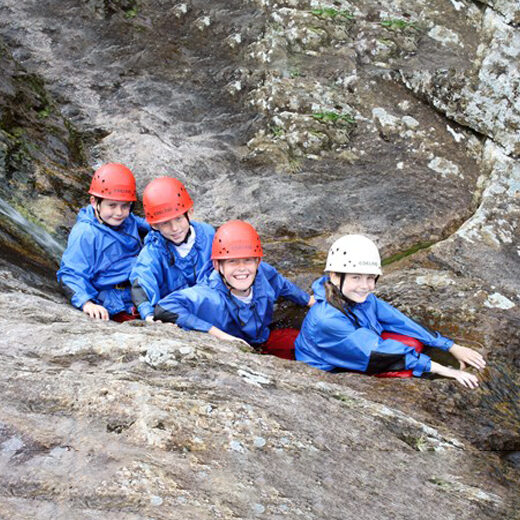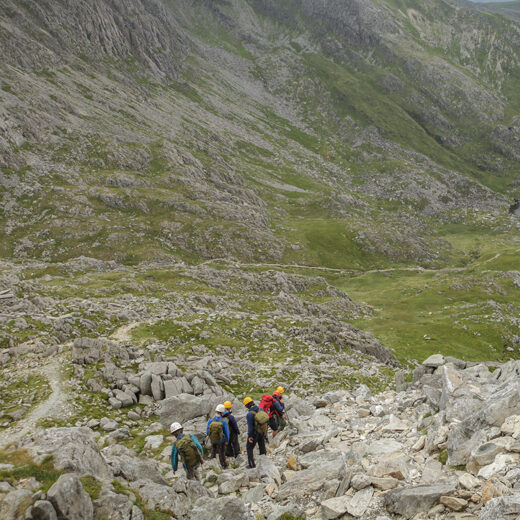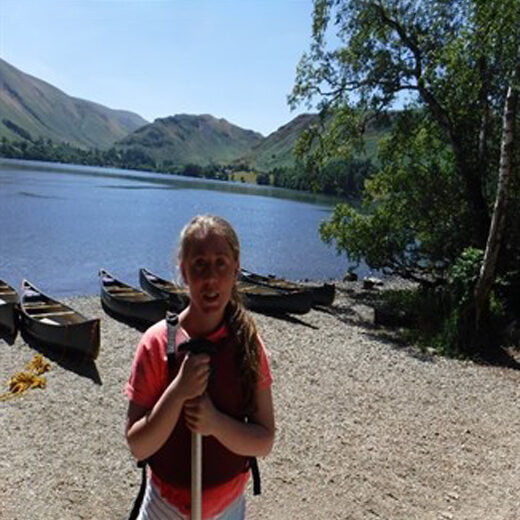Five ways the outdoors can boost mental wellbeing
With the stresses and strains of everyday life, the mental wellbeing of young people is a significant societal concern, especially with as many as one in five 16 to 24 year olds suffering from anxiety or depression.
An almost identical proportion of this demographic is physically inactive, engaging in less than 30 minutes of exercise per week. And in an age dominated by addictive stay-at-home technologies and social media, it is easy to see how young people opt out of exploring the outdoors.
But what are the benefits of being in the outdoors for mental wellbeing?

1. Healthy body, healthy mind
A recent survey by Ipsos MORI for Sport England found that, on average, the more active a person is, the more satisfied they are with their life. Countless other studies have demonstrated clear links between regular physical activities and reduced levels of the stress hormone cortisol, as well as increased levels of feel-good endorphins.
2. A good night's sleep
Natural light can help to regulate the production of melatonin, a hormone that plays a crucial role in controlling your body clock. Lack of exposure to natural light during the day can lead to insufficient melatonin levels at night, disrupting your sleep when your head hits the pillow, according to researchers at the Federal University of Rio Grande do Sul, Brazil
3. Resilience
Stepping outside your comfort zone requires mental and physical resilience. This is an essential attribute for aspirational young people who are looking to stand out from the crowd and are hopeful of a fulfilling career. After all, in 2015, the Confederation of British Industry reported that 61% of businesses were not satisfied with the resilience of young people. The Australian Journal of Outdoor Education published a study on the resilience of male youth at-risk, and their research showed that the participants' resilience significantly increased following a wilderness therapy programme which included a 10-day hike.

4. A nose for Calm
A stunning landscape is a pleasure for the senses – and not just because of the scenery. The mere smell of the countryside, from pine trees to fresh grass and green leaves to flowers, has been scientifically proven to reduce stress levels, according to Dr Nick Lavidis from the University of Queensland’s School of Biomedical Science, after a seven-year research project (check his TEDx).
5. Unleash Your Creativity
Outdoor exercise, particularly in out-of-town locations, can clear the cobwebs in the head as well as the muscles. Backpackers scored 50% better on a creativity test after spending four days in nature, disconnected from the distractions of electronic devices, according to a study by psychologists from the University of Utah and University of Kansas.
Further Reading

Helping every child feel valued, indepen...
15 June 18
Headmaster of Giggleswick Junior School, tells us how they use outdoor adventure

Our environment, our carbon footprint
29 August 18
Outward Bound, connecting young people to the natural environment.

I have achieved more than I thought I wo...
20 August 18
Chelsea shares with us her Skills for Life Award achievements from this summer.
Find out more
It's no secret that Outward Bound are big fans of mother nature. We're all about getting young people outdoors into the wilderness to experience new challenges and adventure. It's no secret that Outward Bound are big fans of mother nature. We're all about getting young people outdoors into the wilderness to experience new challenges and adventure.
Sign up to see for yourself
If you work in a school, college or youth group, find out how we use the power of the wilderness to support young people's mental health and wellbeing at one of our free taster courses.